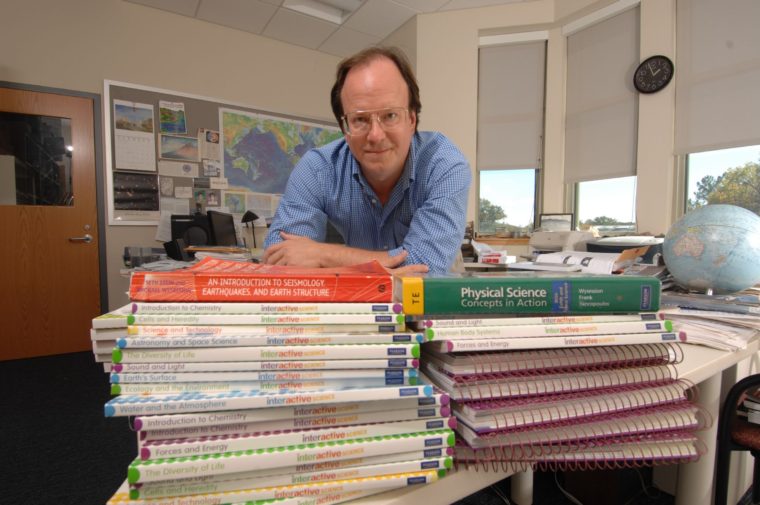Michael Wysession, professor of earth and planetary sciences at Washington University in St. Louis, is the lead author on several high-school and middle-school textbooks and videos in physical science and earth science, co-authored a kindergarten through eighth grade national-science program, and also is a co-author on a leading geophysics undergraduate and graduate college textbook. He designs and instructs a course at several NASA locations, and speaks frequently to teacher-organization meetings such as the National Science Teachers Association.
If Betsy DeVos, President Trump’s pick to lead the U.S. Department of Education (DoED) among his many wealthy cabinet-head candidates, is able to carry out her plans of slashing the department she would head, the losers will be, once again, the poorest and neediest children of America. In a terrible irony, rural school districts — from where came some of the president’s largest election support — will see some of the hardest hits in educational funding. These areas often rely heavily upon Title I, which provides financial assistance to local schools with high numbers of children from low-income families.
With cuts to Title I and other programs that are more modestly supported by the DoED and help the disadvantaged, disenfranchised and disabled American students (such as Striving Readers, Migrant Education, Rural Education, Indian Education, Promise Neighborhoods, Special Education State Grants, etc.), DeVos — the daughter and daughter-in-law of billionaires — will try to make sure that none of America’s poorest citizens ever has a chance of joining her elite club of wealthy inheritors.
DeVos, a strong proponent of religious education, school vouchers, and private schools, also has been a very vocal opponent of the public educational system that the DoED safeguards.
However, as her Senate hearings showed, DeVos is deeply ignorant of what the DoED actually does. Education in the U.S. is largely decentralized, left to individual states, and only 8 percent of national K-12 education comes from DoED funding. But this is almost entirely in the form of a safety net for low-income schools and districts. For example, of the $68 billion in DoED funds (just 6 percent of U.S. government discretionary spending), most went to programs such as Title I, which provides needed resources to more than 20 million low-income children in over 56,000 public schools, largely rural and urban.
DeVos has no experience with public schools and sees no need for them. Fortunately, as public education is largely supported by individual states, DeVos would not be able dismantle U.S. public education, but she could make it much harder for low-income children, no matter how gifted, to receive the education we as a society owe them.
So, to DeVos or whoever heads the DoED: Don’t make cuts that cut deepest into the poor and under-represented.
Read more “First 100 Days” messages at Election2016.wustl.edu.
